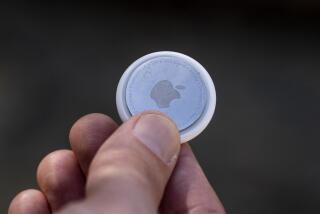California Location Privacy bill moves to full Senate vote
Most of the California Location Privacy Bill to require a warrant to access location information from cellphones is moving on for consideration by the full Senate. What isn’t moving forward is the section requiring wireless providers to produce a detailed report on the information they provide to government agencies.
Senate Bill 1434, introduced by state Sen. Mark Leno (D-San Francisco), was recently approved by the Senate Public Safety Committee with an amendment.
Five members of the committee ultimately approved the bill, but not without some dissent. Three members accepted the bill in its entirity and two voted for it after the reporting requirement was removed.
The bill is an amendment to the Penal Code, to clarify the use of this ubiquitous and near-constant data stream in our pockets. Truly, with internal GPS, our cellphones probably know more about our movements than even our loved ones.
Wireless industry group CTIA -- the Wireless Assn. opposes the bill but said that shouldn’t be “considered as a degradation of the wireless industry’s commitment to its customers’ privacy.”
While the American Civil Liberties Union is encouraged that SB 1434 is moving forward for broader consideration, they said the reporting component was vital for transparency, said Nicole Ozer, ACLU of Northern California’s technology and civil liberties policy director, “so that we would know the police are actually following the law and our rights are protected.”
At issue is more transparency in how often that wealth of information about “who we are and where we go” is being mined from cellphone GPS data, Ozer said.
In December 2009, Wired reported, for instance, that Sprint gave law enforcement agencies customer location data more than 8 million times in a 13-month period, according to a company insider.
“Our opposition is focused on its provision that places reporting burdens on carriers rather than on the prosecutors who make these requests,” Jamie Hastings, vice president of external and state affairs for CTIA wrote in an email to The Times.
Hastings said that although the debate is important, the group finds the bill overly broad. “CTIA does not believe that wireless carriers should be expected to seek court review of the legality of the subpoenas and court orders they receive seeking location information.”
“What’s clear is the wireless industry doesn’t want us to know what’s happening with our data,” Ozer said.
The ACLU has been looking into how consumer data is being used. The organization obtained a 2010 document from the Justice Department about how long cellular providers retained records.
Among the details discovered was that AT&T keeps records of what cell towers its subscribers used -- essentially everywhere their cellphones traveled -- the longest, with records going back to July 2008, according to the document.
Last month, the ACLU released results of a voluntary audit of the policies and practices of law enforcement agencies around the country. The organization found that, for the majority of those that participated, it’s not uncommon for cellphones to be virtually tailed using either the phone’s own GPS or cellular triangulation without obtaining a warrant or subpoena.
SB 1434 is to be heard by the Senate later this spring.
RELATED:
Police tracking of cellphones raises concerns
California bill would block cellphone tracking without warrant
SNOPA bill seeks to keep employers out of your private social network
Follow Michelle Maltais on Google+, Facebook or Twitter







